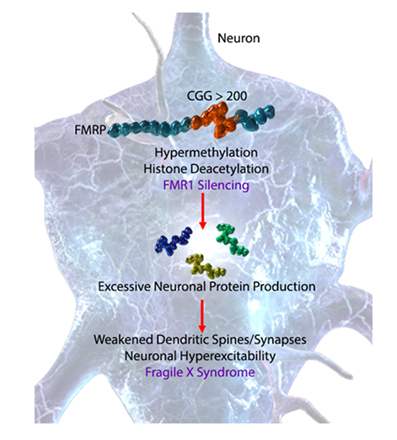| Fragile X Syndrome (FXS) is the most commonly inherited cause of intellectual disability. Specific FXS symptoms include mental retardation, muscle spasms, seizures, and several other physiological changes. FXS is mainly attributed to a change in the FMR1 gene, which produces Fragile X mental retardation protein (FMRP). BioLegend provides reagents for FMRP detection and highlights the study conducted by Saldarriaga, et al. looking into the mechanism of why FMRP fails and how it affects those who develop FXS. |
| FXS occurs when the FMR1 gene undergoes an expansion in the number of CGG nucleotide repeats in its 5' UTR region. Normally, the amount of repeats is between 55 to 200. However, when this number goes over 200, the CpG islands are recognized by methyl transferases, methylated, and silenced. Histone deacetylases are then recruited and condense the chromatin, restricting access to the affected area. Without FMRP, several other neuronal proteins are made, leading to weakened synapses, neuronal hyperexcitability, and FXS. |


 Login / Register
Login / Register 







Follow Us